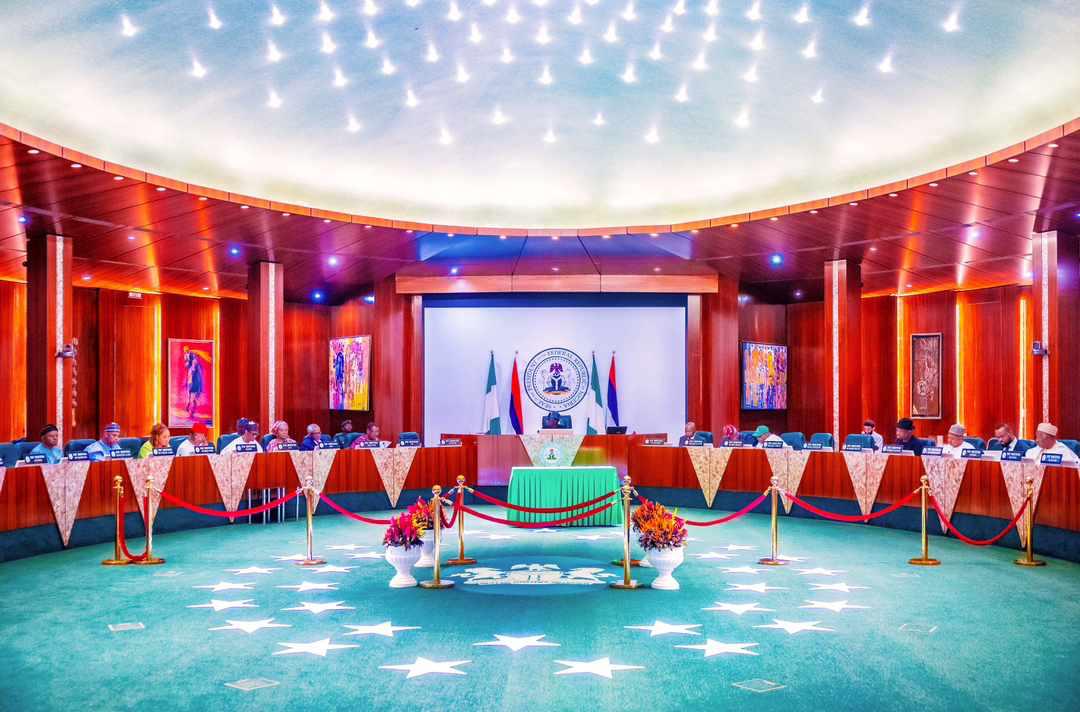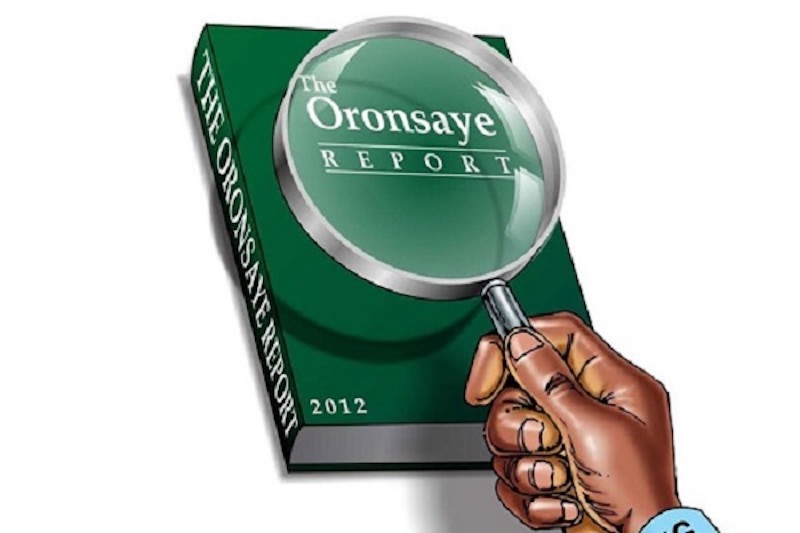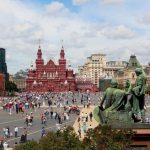General
Full List of MDAs to be Affected by Oronsaye Report

By Modupe Gbadeyanka
On Monday, February 26, 2024, the Federal Executive Council (FEC) approved the implementation of the Stephen Oronsaye Report about 12 years it was submitted by the former Head of Civil Service.
The information has continued to generate reactions from various quarters, with some saying it is just a diversionary tactic employed by the government of President Bola Tinubu to shift attention away from the current economic hardship in the country.
The report recommended the trimming of the federal government’s ministries, departments, and agencies (MDAs) to cut the cost of governance, especially because some of them have duplicity of functions.
The implementation of the report, released in 2012, will see the merger, scrapping, and relocation of some MDAs.
Below is the full list of all the affected MDAs.
Agencies to be merged
National Agency for Control of HIV/AIDS (NACA) to be merged with the Centre for Disease Control in the Federal Ministry of Health.
National Emergency Management Agency to be merged with the National Commission for Refugee Migration and Internally Displaced Persons
The Directorate of Technical Cooperation in Africa is to be merged with the Directorate of Technical Aid and to function as a department in the Ministry of Foreign Affairs.
Infrastructure Concession Regulatory Commission to be merged with the Bureau for Public Enterprises;
Nigerian Investment Promotion Commission to be merged with the Nigerian Export Promotion Council;
National Agency for Science and Engineering Infrastructure to be merged with the National Centre for Agriculture Mechanization and Project Development Institute.
The National Biotechnology Development Agency to be merged with the National Centre for Genetic Resource and Biotechnology
National Institute for Leather Science Technology to be merged with the National Institute for Chemical Technology
The Nomadic Education Commission merged with the National Commission for Mass Literacy, Adult Education and Non-formal Education.
The Federal Radio Corporation to be merged with the Voice of Nigeria
The National Commission for Museum and Monuments is to be merged with the National Gallery of Arts
The National Theatre to be merged with the National Troupe of Nigeria
The National Metrological Development Centre is to be merged with the National Metrological Training Institute.
The Nigerian Army University, Biu, is to be merged with the Nigerian Defence Academy, to function as a faculty within the Nigerian Defence Academy;
Air Force Institute of Technology is also to be merged with the Nigerian Defence Academy, to function as a faculty of the Nigerian Defence Academy.
Agencies To Be Incorporated
The Service Compact with Nigeria (SERVICOM) to be subsumed to function as a department under the Bureau for Public Service Reform
The Border Communities Development Agency is to be subsumed to function as a department under the National Boundary Commission.
The National Salaries Income and Wages Commission is to be subsumed into the Revenue Mobilization and Fiscal Allocation Commission.
The Institute for Peace and Conflict Resolution to be subsumed under the Institute for International Affairs;
The Public Complaints Commission is to be subsumed under the National Human Rights Commission
The Nigerian Institute for Trypanosomiasis to be subsumed into the Institute for Veterinary Research
The National Medicine Development Agency is to be subsumed under the National Institute for Pharmaceutical Research and Development.
The National Intelligence Agency Pension Commission is to be subsumed under the Nigerian Pension Commission.
National Film and Video Censors Board (NFVCB) to be subsumed into the Ministry of Arts, Culture and Creative Economy
Agencies to be Scrapped
The Pension Transitional Arrangement Directorate is to be scrapped and its function transferred to the Federal Ministry of Finance
National Senior Secondary School Education Commission (NSSEC) to be scrapped and functions transferred to the Department of Basic and Secondary Education in the Federal Ministry of Education.
Agencies To Be relocated
The Niger Delta Power Holding Company to be relocated to the Ministry of Power
The National Agricultural Land Development Agency is to be relocated to the Federal Ministry of Agriculture and Food Security
The National Blood Service Commission is to be converted into an agency and relocated to the Federal Ministry of Health
The Nigerian Diaspora Commission is to be converted into an agency and to be relocated to the Federal Ministry of Finance.
General
Transcorp Power Trims Debts by 18% to Strengthen Financial Position

By Aduragbemi Omiyale
To strengthen its financial position and demonstrate disciplined financial management and commitment, Transcorp Power Plc paid down over N7 billion in borrowings in 2025, according to its audited financial results for last year.
Business Post reports that this action reduced its total borrowings by 18.57 per cent to N30.7 billion from N37.7 billion as of December 2024.
This happened as the subsidiary of Transcorp Plc grew its revenue for the year by 30 per cent to N398.27 billion from N305.94 billion achieved in FY 2024, with the gross profit up by 14 per cent on a year-on-year basis to N162.44 billion from N142.21 billion, and the Profit After Tax (PAT) rising by 14 per cent to N91.42 billion from N80.01 billion in 2024, as the Earnings per Share (EPS) went up to N12.19 from N10.67 in 2024.
In the year, total assets jumped by 42 per cent to N563.48 billion from N396.78 billion in FY 2024, and total equity rose by 44 per cent to N183.40 billion from N126.63 billion.
It was observed that the impressive performance of the company was driven by an enhanced generation capacity, with saw the return of GT20, adding 100MW to the national grid from January 3, 2025, which significantly improved overall generation output.
“We remain dedicated to improving lives and transforming Africa, ensuring operational excellence and making strategic investments that deliver sustainable, long-term value to our shareholders, while also powering Nigeria’s socioeconomic development,” the chairman of Transcorp Power, Mr Emmanuel Nnorom, stated.
“The confidence in our financial position allows us to propose a full year dividend of N5.50 per share for 2025, comprising an interim dividend of N1.50 paid on August 18, 2025, and a final of N4.00k, representing a 10 per cent increase from the previous year’s dividend,” he added.
Also commenting, the chief executive of the power generation firm, Mr Peter Ikenga, said, “Our FY 2025 results reflect our steadfast commitment to operational excellence, sustainable growth, strategic market expansion and enhanced generation capacity, which continue to fuel significant revenue growth, enabling us to consistently generate power to the national grid. During the year, we increased our average available capacity from 417MW to 550MW and improved average generation output despite grid and transmission line-related issues.”
“Notwithstanding the network transmission line issues, our FY 2025 performance remained strong and reflects our steadfast commitment to operational excellence and sustainable growth.
“Our confidence in the future trajectory of Transcorp Power to deliver exceptional value to our shareholders remains unwavering. We will continue to work with relevant stakeholders, particularly Transmission Company of Nigeria (TCN), to strengthen the transmission lines and improve evacuation from our plant in 2026 and beyond,” he added.
General
NIMASA Mulls Expansion of Nigeria’s Deep Blue Project

By Adedapo Adesanya
The Nigerian Maritime Administration and Safety Agency (NIMASA) is considering expanding the country’s Deep Blue Project due to its perceived success, with impact felt across the Gulf of Guinea, where it has helped to reduce piracy massively and gained global recognition, to ensure sustainability and greater impact.
The Director General of NIMASA, Mr Dayo Mobereola, made this known during his strategic visit to the Chief of Naval Staff, Vice Admiral Idi Abass, at the Naval Headquarters, Abuja.
Mr Mobereola, while commending the Navy for the harmonious collaboration with NIMASA and congratulating the CNS who had previously served as Maritime Guard Commander under the agency, called for continued partnership with the security outfit under his watch.
“It is important that we continue our partnership and strengthen our relationship. Our purpose here is to congratulate you and to discuss the benefits of the Deep Blue Project, how to sustain it, expand it, and increase its impact on the Gulf of Guinea.
“We are confident that we have the backing of the President, the Minister of Marine and Blue Economy, and the Nigerian Navy, hence, we are working towards presenting our proposal on the necessary improvements to be undertaken,” he stated.
The DG acknowledged the importance of the Deep Blue Project, noting that its impact resonates globally, with the International Maritime Organisation (IMO) commending it.
“The Deep Blue Project is vital, and countries around Africa and some other parts of the world are coming to copy our model. The IMO is asking how a civilian organisation was able to achieve this feat. It is therefore important that we continue to collaborate and do even better for greater sustainability,” he said.
Mr Mobereola also congratulated the Chief of Operations, Nigerian Navy, Rear Admiral Musa Katagum, who is joining the NIMASA governing board as the Navy’s representative.
On his part, the Chief of Naval Staff, Vice Admiral Idi Abass, while welcoming the NIMASA DG and his delegation, commended the Agency for the good work it is doing in the maritime sector and its continued support to the Nigerian Navy.
“Part of my command’s objective is to work in synergy with other agencies to achieve our goal as a country. We complement each other. We have no option but to collaborate and synergise.”
The Naval chief noted some concerns, which include the MoU between NIMASA and the Nigerian Navy, which has been in place since 2007 and should be revisited.
He also solicited for the Navy to be called upon for such needs as vessel repair, hydrographic surveys and chartings, stating the Navy’s capacity in handling such tasks.
The CNS also canvassed NIMASA’s assistance for wreck removal, particularly as the Navy gears towards its 70th Anniversary, where it looks forward to welcoming foreign ships.
He further commended NIMASA for its recent launch of the Cabotage Vessel Financing Fund (CVFF) Application Portal, noting that the organisation has come a long way in its planned disbursement of the fund.
General
Ikeja Electric Fumes Over Impropriety Allegations Against CEO, Chairman

By Adedapo Adesanya
Ikeja Electricity Distribution Company has described as malicious and misleading a widespread publication currently circulating online alleging impropriety about its chief executive, Ms Folake Soetan, and its board chairman, Mr Kola Adesina.
The management of the DisCo noted that a publication attributed to ‘Nigerian Global Business Forum’ defamed its CEO and the chairman of the IKEDC board.
The company said, “The publication, attributed to yet to be verified individuals and organisation, is clearly intended to misinform the public and bring the company and its leadership into disrepute through fabricated claims, the DisCo observed.”
Ikeja Electric noted that its investigation so far revealed that the ‘Nigerian Global Business Forum’ is an unregistered organisation with no recognised legal or corporate existence locally or abroad.
According to the energy firm, the signatories, “Dr Alaba Kalejaiye” and “Musa Ahmed,” have no verifiable professional credentials or established public profiles, and the publication contains false and misleading statements regarding Ikeja Electric’s operations, safety record, and financial practices.
The organisation said it had instructed its legal advisers to conduct a thorough forensic investigation and to initiate defamation proceedings against the authors, publishers, and any persons or entities found responsible for sponsoring or disseminating this malicious publication.
Ikeja Electric said it operates within a strict framework of accountability and remains committed to transparency and service improvement, warning it will not tolerate coordinated disinformation campaigns aimed at undermining public confidence and tarnishing its corporate integrity.
“Ikeja Electric remains steadfast in its mandate to deliver reliable power while upholding the highest standards of corporate governance and customer excellence.
Members of the public are advised to disregard the false publication in its entirety,” it said in a statement.
-

 Feature/OPED6 years ago
Feature/OPED6 years agoDavos was Different this year
-
Travel/Tourism9 years ago
Lagos Seals Western Lodge Hotel In Ikorodu
-

 Showbiz3 years ago
Showbiz3 years agoEstranged Lover Releases Videos of Empress Njamah Bathing
-

 Banking8 years ago
Banking8 years agoSort Codes of GTBank Branches in Nigeria
-

 Economy3 years ago
Economy3 years agoSubsidy Removal: CNG at N130 Per Litre Cheaper Than Petrol—IPMAN
-

 Banking3 years ago
Banking3 years agoSort Codes of UBA Branches in Nigeria
-

 Banking3 years ago
Banking3 years agoFirst Bank Announces Planned Downtime
-

 Sports3 years ago
Sports3 years agoHighest Paid Nigerian Footballer – How Much Do Nigerian Footballers Earn












